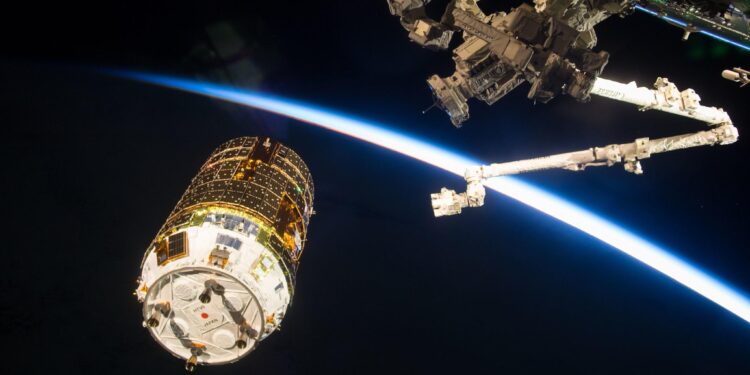Japan is recalibrating its space policy, marking a decisive shift from a predominantly scientific focus toward enhancing national security capabilities. This strategic pivot reflects growing regional tensions and the increasing militarization of space, prompting Tokyo to bolster its space defense framework. As Japan seeks to protect critical satellite infrastructure and contribute more actively to collective security, experts note that this new direction underscores the evolving dynamics of space as a contested domain. The move signals Tokyo’s intent to balance its long-standing peaceful space exploration agenda with emerging geopolitical realities.
Japan Prioritizes National Security in New Space Policy Framework
In a strategic pivot, Japan is reshaping its space policy with a clear focus on fortifying national security. This new framework underscores the growing perception of space as a critical domain where geopolitical tensions are increasingly pronounced. By emphasizing security, Japan aims to enhance its capabilities in surveillance, missile defense, and satellite protection, signaling a move away from purely scientific exploration toward pragmatic defense considerations. This transition reflects a broader international trend where space is no longer just an arena for innovation but also a potential battleground for technological supremacy and strategic advantage.
The revised policy outlines several prioritized initiatives, including:
- Development of advanced missile early-warning systems leveraging satellite data
- Collaboration with allies for space domain awareness and threat mitigation
- Strengthening of cybersecurity measures to protect critical space infrastructure
| Priority Area | Key Objective | Timeline |
|---|---|---|
| Space Surveillance | Enhance satellite tracking accuracy | By 2026 |
| Satellite Defense | Implement countermeasures against cyber-attacks | By 2025 |
| International Cooperation | Joint exercises with allied space agencies | Annual from 2024 |
Implications of Japan’s Strategic Shift for Regional Space Dynamics
Japan’s reorientation towards a security-focused space policy significantly alters the balance of power in the Indo-Pacific region. As Tokyo prioritizes space defense capabilities, neighboring countries like China and South Korea are expected to recalibrate their own space strategies, potentially sparking a regional “space arms race.” The increased deployment of surveillance satellites, missile warning systems, and space situational awareness tools will not only enhance Japan’s defensive posture but also serve as a deterrent against emerging threats in and beyond Earth’s orbit. Key regional players may accelerate their investments in space technology, signaling an era where space is no longer just a domain for exploration but also a contested battlefield for geopolitical dominance.
- Enhanced collaboration: Japan is likely to deepen space security cooperation with allies like the United States and Australia.
- Technological innovation: New space defense technologies may emerge, focusing on satellite protection and anti-jamming capabilities.
- Strategic vulnerabilities: Countries may increase efforts to protect terrestrial and orbital infrastructure from cyber and kinetic attacks.
| Country | Focus Area | Recent Developments |
|---|---|---|
| Japan | Space Defense & Surveillance | Launch of dual-use satellites, expanded space policy budget |
| China | Anti-satellite Weapons, Space Station | Successful ASAT tests, growing orbital presence |
| South Korea | Satellite Intelligence & Communication | Development of military communication satellites |
| Australia | Space Domain Awareness | New radar installations tracking space debris |
Experts Recommend Strengthening International Collaboration to Balance Security and Scientific Goals
International experts emphasize that Japan’s pivot toward prioritizing national security in space should not come at the expense of scientific progress. They advocate for a balanced approach where cross-border partnerships remain integral, ensuring that research initiatives and security objectives complement rather than conflict with each other. Collaborative frameworks involving government agencies, private sector players, and international counterparts can create robust, dual-purpose programs that address both technological innovation and defense requirements. This synergy is seen as vital for maintaining global stability while advancing space exploration.
Key areas where collaboration is deemed essential include:
- Information sharing: Enhancing transparency on space activities to prevent misunderstandings and foster trust.
- Joint research and development: Pooling resources to develop cutting-edge technologies that serve both scientific and security goals.
- Establishing international norms: Crafting treaties that balance military uses of space with peaceful exploration.
| Collaboration Benefit | Impact on Space Policy |
|---|---|
| Technology Exchange | Accelerates innovation and strengthens defense capabilities |
| Conflict Prevention | Reduces risk of space militarization mishaps |
| Capacity Building | Supports emerging space nations through shared expertise |
The Conclusion
As Japan reorients its space policy from a primarily scientific focus toward enhanced security measures, the nation signals a strategic pivot amid evolving regional and global dynamics. This shift underscores Tokyo’s intent to safeguard its interests in space while responding to emerging threats and geopolitical challenges. Moving forward, Japan’s space ambitions will likely balance technological advancement with defense imperatives, marking a new chapter in its approach to outer space.










